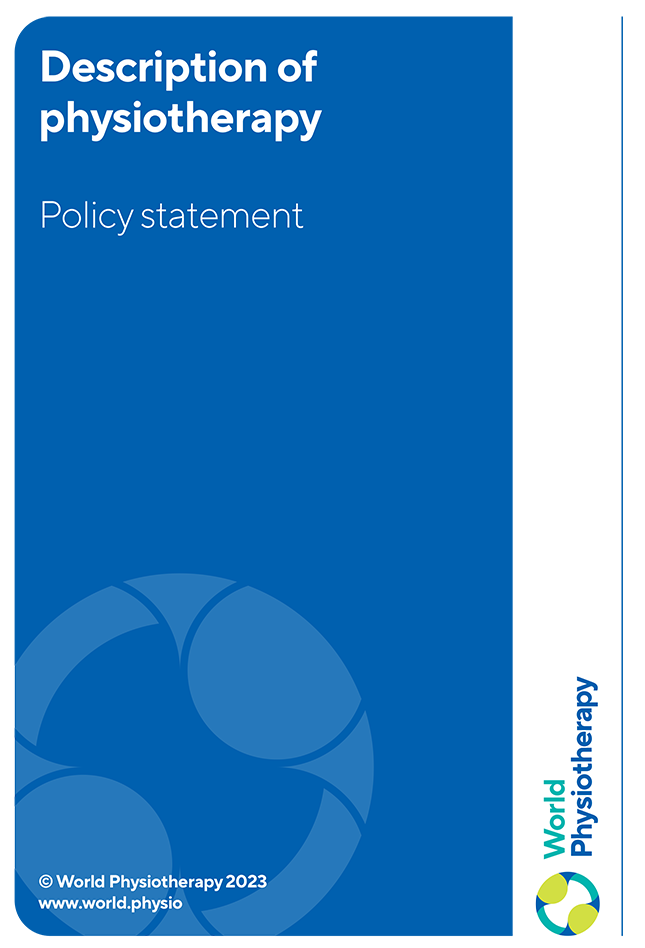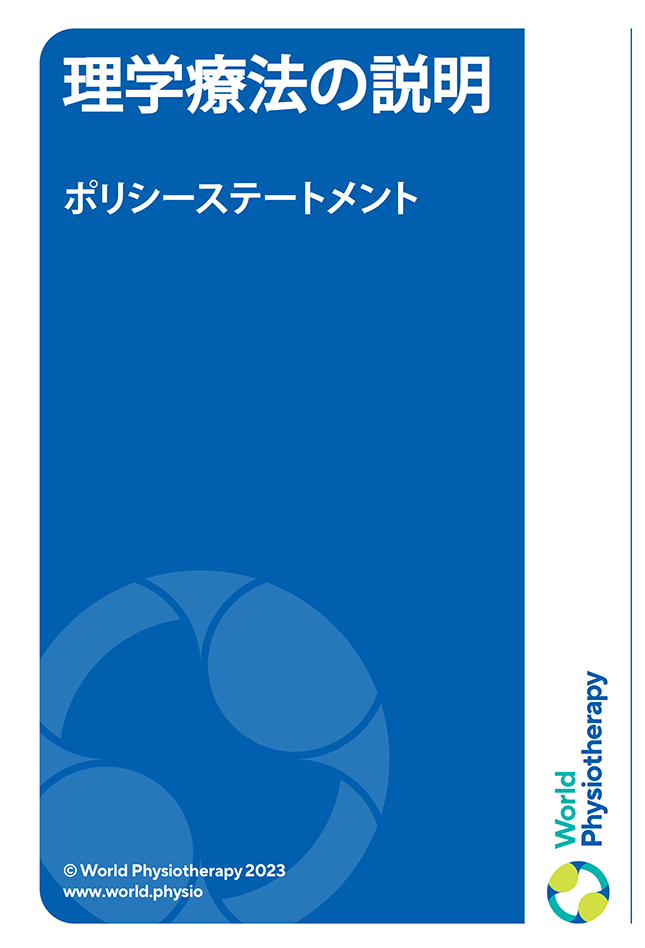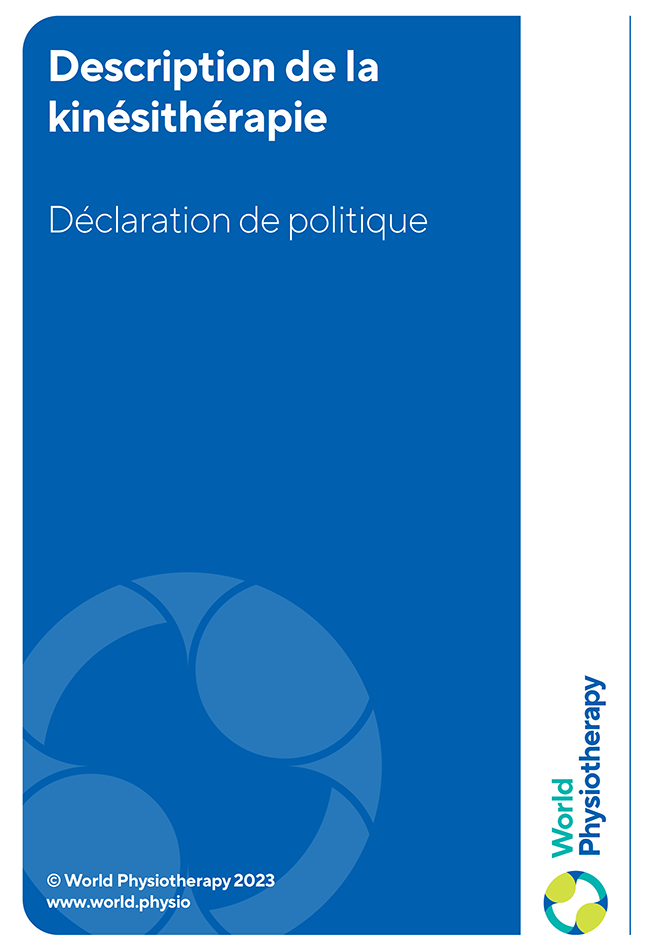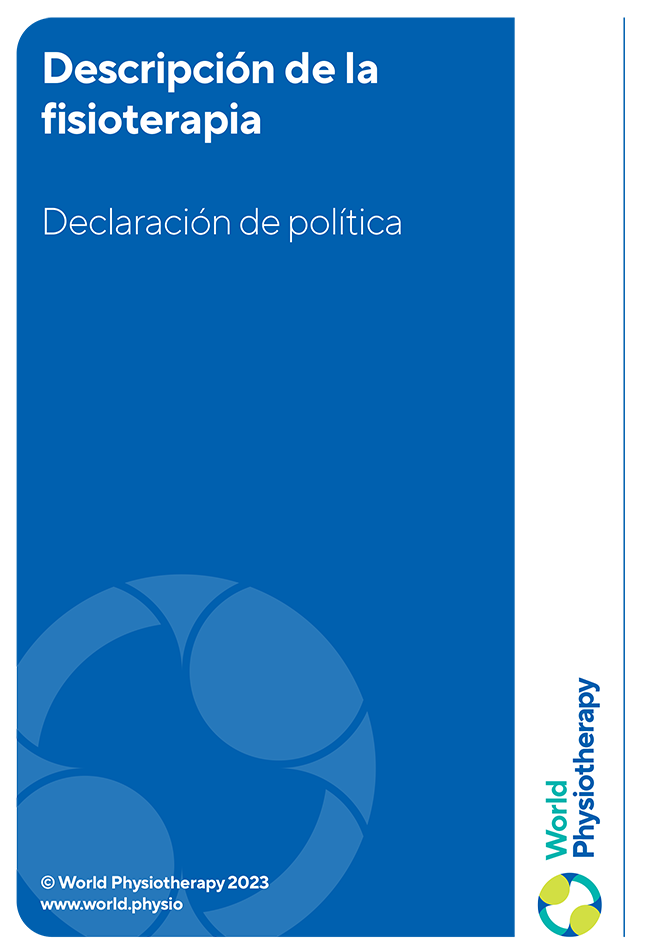World Physiotherapy advocates that the profession of physiotherapySee Physical therapy is responsible for articulating the profession’s scope of practiceScope of practice: The full spectrum of roles, functions, responsibilities, activities and decision-making capacity that individuals within the profession are educated, competent and authorised to perform. WCPT describes the parameters of a physiotherapist’s scope of practice in its description of physiotherapy. See also Advanced practiceView full list of glossary terms and defining the roles of physiotherapists. National physiotherapySee Physical therapy associations are responsible for defining physiotherapySee Physical therapy and physiotherapists’ roles relevant to their nation’s healthHealth: 'Health' is defined in the WHO constitution of 1948 as a state of complete physical, social and mental well-being, and not merely the absence of disease or infirmity. See also Health promotionSee full list of glossary terms service delivery needs, ensuring that they are consistent with accepted international guidelinesGuidelines (World Physiotherapy): Produced to assist member organisations and others to raise the quality of physical therapy. They may provide guidance on standards, criteria or courses of action in areas relevant to physical therapy education, research, practice or policy. They are not mandatory but designed to assist the implementation of World Physiotherapy’s policies. Guidelines are resources to assist with the implementation of policy and do not require a vote to be taken at a World Physiotherapy General Meeting. See full list of glossary terms set out by World Physiotherapy. National physiotherapySee Physical therapy associations have a responsibility to seek support for legislation/regulationSee Regulation of the profession/recognitionRecognition: Formal acceptance of a student’s knowledge, skills, or former academic studies and the granting of advanced standing or credit. The term may also apply to formal acceptance of an educational institution by another institution or public authority. Recognition relates more to acceptance and equivalency, i.e. determining a relationship of parity between one system, jurisdiction, or institution and another with respect to the value and significance of courses, diplomas, certificates, licenses, and/or degrees. View full list of glossary terms, which defines the distinctive and autonomous nature of physiotherapySee Physical therapy practice, including the profession’s scope of practiceScope of practice: The full spectrum of roles, functions, responsibilities, activities and decision-making capacity that individuals within the profession are educated, competent and authorised to perform. WCPT describes the parameters of a physiotherapist’s scope of practice in its description of physiotherapy. See also Advanced practiceView full list of glossary terms.
Policy statement: Description of physiotherapy





